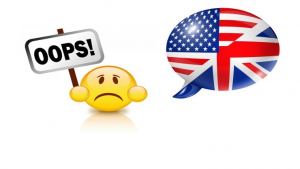Language/English/Vocabulary/Common-Mistakes/ar
إذا كنت ترغب في تحسين مستواك في اللغة الإنجليزية، ليك بعض الأخطاء الشائعة التي يجب أن ترها قبل . رأيت في العديدةالأوقات المنشورة على هذا الموقع (وأحيانا في التصحيحات). إذا كنت تواجه صعوبة في الحصول على هذه الكلمات صحيحة ، لا تقلق، فإنه من السهل حتى على متحدث بها كلغة ام الخلط بينها.
إذا كنت مبتدئا، لا تقلق بشأن الحصول عليها صحيحة، ركيز على الصورة الأكبر.
لا يزال الناس يفهمون ما تقوله إذا كنت تستخدم كلمة خاطئة.
هذه المقالة هي في معظمها للمتعلمين المتقدمة و هولائك الذين اجروا اختبارها.
من جانب ، انه رائع حقا أنك تأخذ اهتمامك في تعقيدات اللغة، وكثير من الناطقين بها حتى لا يهتمون لمعرفة الفرق بين هذه الكلمات.
What أو Which?
(وهذا هو الخلط الأكثر شيوعا لقد رأيت في هذا الموقع).
- What يستخدم لعدد غير محدد من الأشياء.
“What color dress should I wear?”==اي لون يجب ان البس ؟ (يمكن أن يكون هناك الملايين من ألوان مختلفة)
- Which يشير إلى عدد محدد من الأشياء.
إذا كنت اختيار بين ثلاثة فساتين ملونة مختلفة في خزانتك، يمكنك استخدام Which . “Which color dress should I wear?” = اي لون يجب ان ارتديه ؟
Who او Whom?
If in doubt, choose “who.” I’m not sure how strict other countries are on this rule, but most Americans don’t care.
The general rule is, if you can substitute “he” into the sentence, then the correct word is “who.” If you can substitute “him” into the sentence, the correct word is “whom.”
“I know whom the story was about.” (Using the substitution, “The story was about him.”) “I know who wrote the story.” (Using the substitution, “I know he wrote the story.”)
Further vs. Farther
Farther refers to physical distance, while further means to a greater degree.
“I don’t know how much farther I can walk.” “You shouldn’t need any further explanation after you read this article.”
Loose vs. Lose
- Loose is an adjective.
“That screw is loose.”
- Lose is a verb, meaning to not win something or to misplace/not be able to find something.
“You always lose when you play Monopoly.” “Did you lose your ring again?”
Affect vs. Effect
- Affect is a verb.
“Your sadness affects other people.”
- Effect is a noun.
“Studying has a profound effect on test scores.”
Accept vs. Except
- Accept means to agree or receive something.
“I accept your apology.” “In 2016, Leonardo DiCaprio finally accepted his first Oscar.”
- Except means aside from, as a way of excluding things.
“I’d be happy with any color except pink.”
Few vs. Less
- Few means small in number, and is used with something that can be counted. You can also use “fewer” to compare things.
“There were few reasons why I hated him, but they were strong ones.” “After he ate a jelly bean, there were fewer in the jar.”
- Less means smaller in amount, and is used with something that can be measured, but not definitively counted.
“After he drank water, there was less of it in the bottle.”
Then vs. Than
- Then is used as a transition in time.
“I went to the mall, then I went to the park.”
- Than is used to compare things to one another.
“My brother has more money than me.” English is a pretty complicated language when you put all these similar words next to each other. They look virtually the same, but have different meanings. Don't worry if it takes a while to get the hang of these words!
Good luck with your English!

